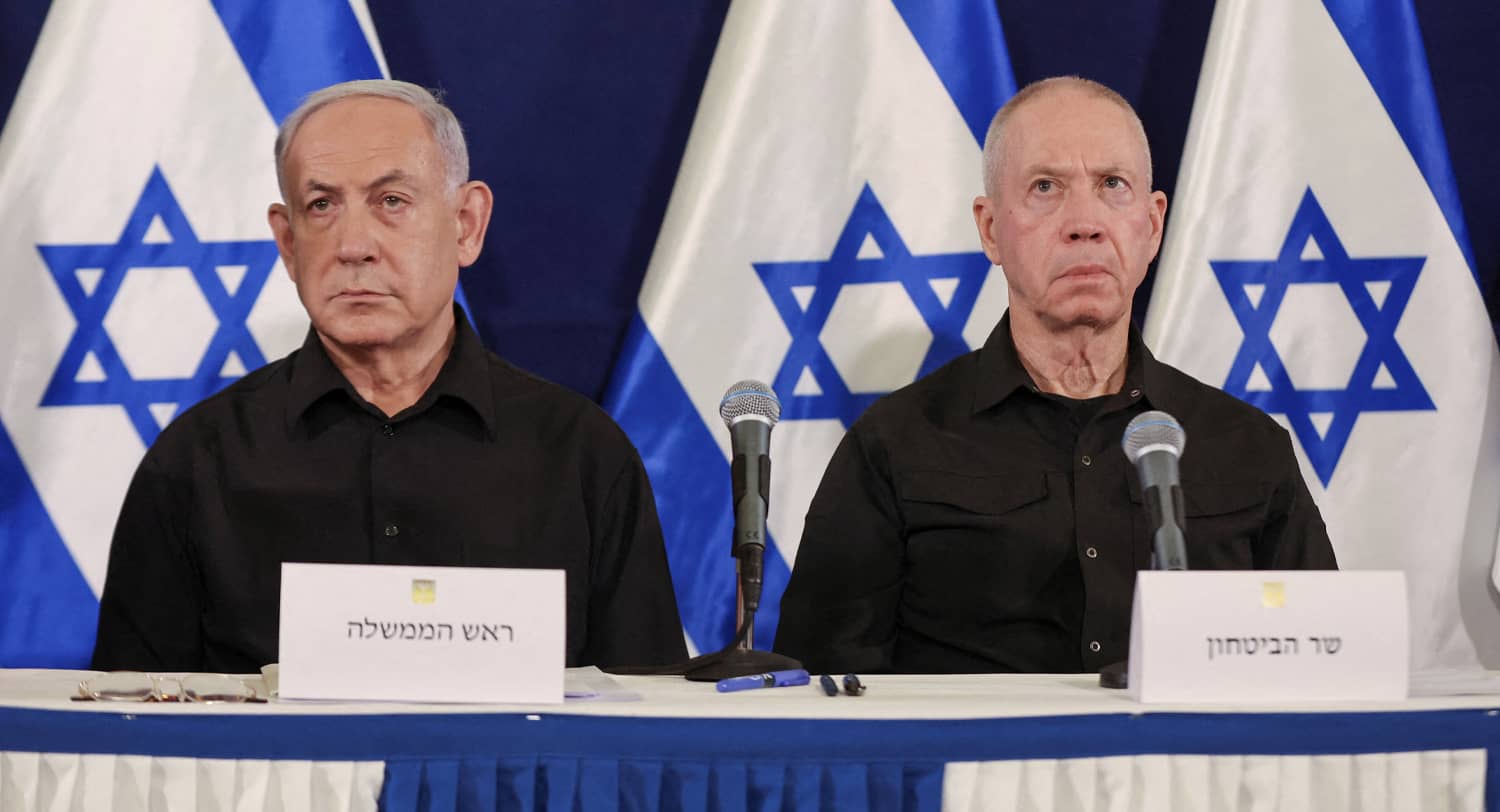As 2024 began, the Israeli war effort in the Gaza Strip changed in nature (see Israel Shifts Tactics in Gaza), with the focus shifting to the battles in the central and southern areas and to special forces operations against Hamas’ immense tunnel system. But the hostage situation remained unresolved, with 136 still held according to Israel’s count. The sad news of loss in battle, with the faces of the fallen and their life stories that have come to a premature end, continue to be at every Israeli doorstep and computer screen with the morning (and mourning) news.
>> Insight from Israel: Read more from Eran Lerman
Morale and determination in the ranks of the fighting forces remains high, and the recognition that Hamas must be dismantled is still prevalent among the public at large (Let Israel Finish the Job). But at the same time, questions continue to be raised – in public and private discourse, in the traditional media, let alone in the busy and often bruising social networks – as to the ultimate purpose of the war and the direction in which the country is headed.
As a result, even though the end of the war is not in yet in sight, the country is witnessing the stirring of re-awakened political debates about the legitimacy of the present government, about the proper priorities in pursuing the war, about the “Day After” in Gaza, and ultimately, about the need to translate both the bitter lessons of October 7, and the remarkable resilience shown by Israeli society in response, into a new national covenant and a transformed political reality.
Quite early on in the war, there have been calls for Prime Minister Binyamin Netanyahu to take full responsibility for the catastrophic failure of October 7 and step down – which he refuses to do. Moreover, in late October he attempted to put the blame squarely on the shoulders of the military and the intelligence services – for which he was forced to apologize (Netanyahu blames security agencies for intelligence failure, then pulls back). But his loyalists keep up the attacks on the “Deep State” (the military as well as the courts). For instance, one Likud member of Knesset alleged that the IDF high command admitted to a terrible mistake in the Gaza war, in which three hostages were accidentally killed, with the deliberate intent of demoralizing the public and bringing about the end of the fighting (IDF publicized killing of hostages in ploy to end Gaza war – Gotliv – The Jerusalem Post).
As these tensions persist, they feed an ongoing rift between Netanyahu and Minister of Defense Yoav Gallant. In March 2023, Netanyahu fired Gallant when he warned against growing security dangers, only to be reinstated due to massive public pressure. Continuing tensions between the two impede the formulation of long-term policy toward the Gaza Strip and “the Day After.” In early January, Gallant briefed the media about his own ideas – an end to Hamas rule, a “multinational task force” and coalition for reconstruction, local Palestinian authorities playing a role, and Israel free to act to foil terrorist activities (Israeli Defense Minister Presents Plan for ‘Day After’ in Gaza). A leaked clarification from the Prime Minister’s office swiftly followed: no such plans have been taken up, let alone approved, by the Cabinet.
For Netanyahu, moreover, the political danger is that any plan which implies that Gaza will not be under Israeli control would run afoul of his right-wing coalition partners, who openly advocate the migration of the present population and the rebuilding of Jewish settlements in Gaza. The underlying political rivalry thus becomes a direct obstacle to the adoption of any coherent plan that can counter the increasing American pressure to bring in the hapless Palestinian Authority as the government in Gaza once the fighting ends.
For this and other reasons, many among those who led the judicial reform protests in the first nine months of 2023 are considering the option of taking to the streets again to force a government change; a few have already done so. This significant political segment of Israeli society – on the left, center, and some even on the right – is sometimes referred to as “anyone but Bibi” (with the Hebrew acronym RLB “Rak Lo Bibi”).
The protestors were initially preoccupied with the war. Some of its leaders, such as Major General Yair Golan, went south to fight on October 7. Others, calling themselves “Brothers in Arms,” set up supply centers or worked with those evacuated from their homes. Now some of them are speaking of taking to the streets again.

Political tensions have also seeped into the debate over the hostage situation and the priority that their release should be given. The Hamas leadership, from their shelters underground, blatantly demand an end to the war and an Israeli withdrawal, as well as the release of all security prisoners held by Israel – in other words, an Israeli defeat.
Some of Netanyahu’s fiercest detractors are also raising the call – “Bring Them Home Now” – which explains why this, too, has taken on a political coloring, alongside the natural sentiments and sense of pain that all or most Israelis share as the agony of the hostages and their families endures. Some of Israel’s most prominent political commentators write that they suspect that Netanyahu is prolonging the war – and refusing to accept Hamas’s terms – not on the strategic merits of the case but because he wants to put off the day of reckoning that is bound to come once the fighting ends. This accusation ignores the majority public support for the goal, also shared by the American administration, of dismantling Hamas. But reason is not always the driving force, on both sides of the divide, when passions run high, and Netanyahu’s own conduct helped feed them.
What do Netanyahu’s detractors seek? Some are putting forward a demand for an early election, perhaps as early as May 2024 (which would require the Knesset to disband itself soon). They pin their hopes on the persistent polls, which give the present coalition twenty seats less in the next Knesset, while Benny Gantz and his centrist party seem set to win and take power. Others would settle – as opposition leader Yair Lapid recently suggested – for the personal replacement of Netanyahu by another Likud leader in the present Knesset. For any of these options to be realized, however, a significant number of Likud members of Knesset would have to join the opposition in voting Netanyahu out. That’s not likely to happen, but the prospect keeps Netanyahu wary of any prominent or semi-independent voices within his own party.
Meanwhile, tempers are fraying on the right, within Likud as well as among the two hard-right factions that Netanyahu’s majority in the Knesset may depend upon: Religious Zionism, led by Betzalel Smotrich, and Jewish Power, led by Itamar ben-Gvir (both came under direct criticism by the Biden administration and others around the globe for their advocacy of reducing the present population in Gaza). They are also livid about Netanyahu’s decision to appoint former Chief Justice Aharon Barak to serve as the Israeli judge on the panel of the International Court of Justice, which weighs South Africa’s accusation that the war in Gaza amounts to genocide.
Judge Barak is a bête noire of the right, portrayed as the architect of left-wing judicial activism. For the right, selecting Barak indicates that Netanyahu has now given up on the agenda of judicial reform. Indeed, the Supreme Court ruled (by the slim majority of 8 to 7) to strike down the one legislative act of the reform package passed thus far by the Knesset – a law forbidding the Supreme Court to use the standard of “reasonableness” in determining the legality of government decisions and appointments (Why is the court striking down the reasonableness law now? – analysis – Israel News – The Jerusalem Post). Netanyahu’s response amounted to little more than a sigh, although his right-wing allies and some of his Likud colleagues reacted sharply.
The Court also ruled – by a vote of 12 to 3 – on a far-reaching issue of the balance between branches of government. The law banning the reasonableness standard was an amendment to a basic law (the 1994 Basic Law on the Judiciary). Basic Laws are conceived of as building blocks for a future constitution. Thus before reviewing this law, the Court took up the general issue of its ability to review basic laws and amendments to them, and decided that it could do so. This ruling further reduces the prospect for judicial changes, thus ending the coalition’s main project before the war broke out.
Do these setbacks at the polls and in the courts mean that the role of the right-wing parties will be marginalized in the post-war reality? Not likely. One indication of continuing strength is this: a large proportion of those killed in battle have come from West Bank settlements. The settlers may not be in a position to dictate policy post-war, but they may be able to mobilize public opinion against any notion of future evacuation of settlements in the context of Israeli-Palestinian relations. The need for unity as a lesson of October 7 cuts both ways.



